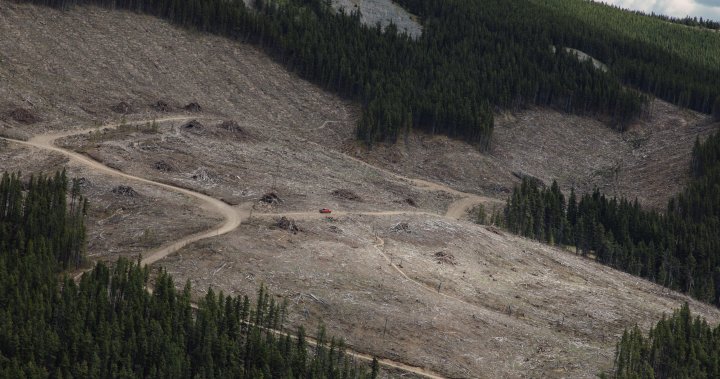Nearly a dozen environmental groups are calling on the federal government to expand its review of Canada’s forestry sector emissions, saying the current scope fails to address their concerns about underreporting.
In an open letter, the groups say the federal government’s review must consider how forestry emissions are estimated in the first place.
The letter, signed by representatives from 11 environmental groups including Nature Canada, says the review’s scope undermines its credibility.
The letter comes after the federal environment commissioner issued a report last year recommending Ottawa initiate an independent review to look at how it estimates and reports on emission related to logging.
In response to that report, the government agreed that independent review was important but noted that the science underlying its carbon reporting was peer-reviewed.
The commissioner’s report has been seized on by environmental groups who have long criticized forestry sector emission reporting, in part because they say the government credits the sector with the emissions absorbed by some trees that naturally regrow after wildfires.
Breaking news from Canada and around the world
sent to your email, as it happens.
“It doesn’t make logical sense because there’s no human intervention. In terms of the regrowth of these trees, it’s totally natural. There’s no real justification for counting and crediting the logging sector with that,’ said Michael Polanyi, a policy and campaign manager with Nature Canada.
A study published in peer-reviewed journal Frontiers in January says Canada’s reporting mechanism makes it an outlier among most other industrialized nations.
By the authors’ count, Canada’s forestry sector contributed the equivalent of about 91 million tonnes of CO2 per year on average between 2005 and 2021, broadly comparable with the electricity and agriculture sectors. But the federal government, credited the sector with absorbing the equivalent of 4.7 million tonnes CO2 per year on average, over the same period, the study found.
Polanyi says that discrepancy leads to “all sorts of distorted policy solutions,” because it portrays the sector as a carbon sink and a climate solution.
© 2024 The Canadian Press




